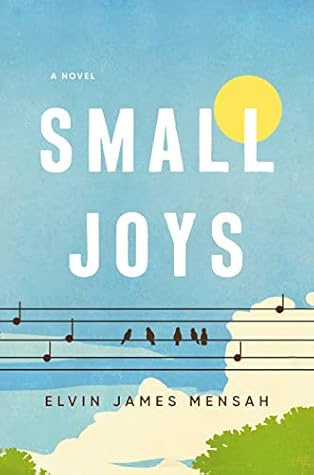More on this book
Community
Kindle Notes & Highlights
Friendship marks a life even more deeply than love. Love risks degenerating into obsession, friendship is never anything but sharing. —Elie Wiesel, The Gates of the Forest
All evening I expected to be reconciled with the sadness from earlier.
It’d roused in me so much anxiety that I had this insidious feeling of never being okay again, not until another bad thing had happened to give this swell of fear some validity.
You didn’t have to be vulnerable for familial pain to ruin you; its power to do so transcended walls you’d built, or the emotional distance you’d put forth because you’d begun to suspect that sometimes love wasn’t all that unconditional.
As someone who had been fearful of every facet of life—the future, the present, and the past—I’d found it fascinating to be in the company of someone who seemed to enjoy this minimum wage job, but was equally excited for what was to come, whatever it was; someone who was seemingly unscathed by any hostility shown toward him.
Life could still feel wonderful, I thought, even if it really wasn’t.
Failures were so insubstantial, so repairable, so easy to amend toward a triumph, yet they still harnessed the power to render my life unbearable.
I’d started making myself tired so I wouldn’t feel any of my real feelings.
Please, let this be enough. Please save me. I don’t want to die. I don’t want to die. I want to be happy.
I’d imagined it so much that, that night, nothing about it felt too outlandish, too uncharacteristic; it even felt familiar; finally doing it felt as if I’d stepped into this desolate world I’d only seen through a keyhole.
“I’ve never really felt as if I’ve mattered to anyone before,” I said. “I thought reconciling with my dad might help. I don’t think I’m the first person to think a parent loving them unconditionally would fix everything. I mean, how is that not magical, right? How wouldn’t that repair everything?
I was constantly atoning for things I’d accepted as my fault—my
Maybe I didn’t need my life to be saved for me, not by my dad or Paul or even Muddy, maybe I needed it to be saved from me.
I knew love didn’t exactly conquer all, but surely it should’ve counted for more than it did in that moment.
felt sorry that he had chosen me as a friend.
I didn’t know what would happen to me. When Muddy visited the next day, I told him how frightened I was, about how real it would feel if I were moved to a psych ward and if I were forced into therapy, that it would no longer be something I could keep to myself; that I would no longer be able to judge the severity of things for myself, that everything would be dissected by a professional; how things would no longer be what I said they were; how I wouldn’t be able to control the narrative anymore, it was going to be written down on paper and solidified; they were going to prescribe things.
...more
He was tired of there being something shameful or unsettling about the blunt expression of friendship, of the simple desire to be there for someone needing to be mocked before it could be respected, of the fact that caring about a friend and wanting the best for them didn’t hold the same value as money, when it was just as essential, if not more so.
And fuck you for not letting me be there for you.”
Happiness was scary because the loss of it was scary.


